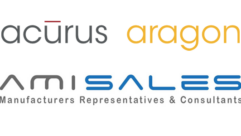THE POWER OF A NAME
Nov 1, 2002 12:00 PM,
ALAN KRUGLAK
Many times people fail to recognize that a word likeservicecan have different meanings to both clients and integrators. The failure to effectively communicate that difference can result in a lost opportunity.
Humans have another challenge — we continually underestimate the true power of words and their effect on others, especially when it comes to naming a product or service. With the power of a name, you can choose from dozens of examples.
I once developed a terrible toothache. After examining my tooth, the dentist said, “You need a root canal.” I went into a mental state of shock and deep anxiety. I had never had a root canal before, and I could only imagine what lay ahead simply by the words root and canal. When I think of the word root, I think of deep. When I think of the word canal, I think of wide. As a result, I thought that a root canal would have the dentist drilling a two-inch-wide hole from the top of my tooth all the way down to the bottom of my jaw — translating into unbearable pain.
Fortunately, I was wrong. My root canal was less painful than a normal filling. The American Dental Association goofed when it called it a root canal. Instead of calling it root canal, it should have called it tooth saver. That is a perfect example of how a powerful name can affect the perceptions of the client.
NAMING SERVICE AGREEMENTS
The power of the name equally applies to how you label your products and services, especially when it comes to service agreements. The name should be positive, convey a benefit, and tell the client what you provide. However, many integrators use names for service agreements that can invoke the same type of fear in clients that I had when I first learned that I needed a root canal. For instance, one of the most common mistakes companies make is to label their service product as a service contract. Although you are legally selling a service contract, that isn’t what the clients necessarily hear. They hear contract. When most people hear that word, they have a Pavlovian response that brings up unpleasant memories such as lawyers, unbudgeted fees, and aggravation.
Contract implies that you are trying to tie clients down to certain conditions that are favorable only to you. From their perspective, it is an “I win; you lose” word. An alternative to the word contract is agreement. Agreement conveys the feeling that both parties win in the process. A simple way to label your service agreement is to call it XYZ’s Company Service Agreement.
Although nothing is wrong with calling it a service agreement, this approach does not leverage the power of the name, does not convey a benefit, and may not differentiate you from your competition.
THE ALTERNATIVES
So what are the alternatives? One company uses the names of precious metals and stones such as platinum, gold, and diamond. This classification is fine if your prospect is a female. I know one female very close to me who has a painfully thorough understanding of the value between those different items. However, if your prospect is a member of the Y-chromosome group, the chances are that he will be confused when you name your service agreement after anniversary and birthday gifts.
My previous company’s service agreement was called the Full Service Agreement. It accomplished its mission, but I came up with another name that is more powerful and descriptive: the Reliable-24 Service Agreement.
Why should you use a name like that? First, it is positive. Second, it conveys two benefits: your service is reliable and available 24 hours a day. Believe it or not, that is what most clients desperately want to hear. It also describes your service agreement, which helps to differentiate you from your competitors.
As the owner of a business, I know what it’s like to be busy every day, putting out fires and trying to win new business. However, sometimes the simple things differentiate you from the competition, help you close more projects, and increase your recurring revenue. If you have to have a root canal, relax. Just sit back, inhale the nitrogen, and think, tooth saver.
Alan Kruglak’s “Management Perspectives” column features excerpts from his business books, which he based on his experience operating a systems integrator and achieving gross margins of 54 percent and operating profits of 20 percent. For more information, contact him at (301) 365-7522 or [email protected].










